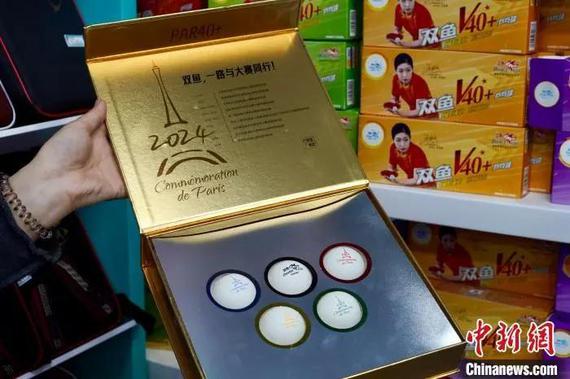|
(ECNS) -- In the wake of the Paris Olympics, the small city of Yiwu in East China's Zhejiang Province has found itself in the international spotlight for its role as a responsive production hub. Yiwu merchants quickly started selling “Huang Yuting gold medal champion-style” hairpins after Huang Yuting, who won China's first gold medal at the event, became popular for her cute hairpin. From January to June this year, Yiwu’s import and export volume totaled 324.77 billion yuan (about $45.5 billion), a year-on-year increase of 20.8 percent. Exports alone reached 288.03 billion yuan, growing 21.4 percent. Yiwu is a microcosm of Chinese industries. According to the Paris Olympic Organizing Committee, 80 percent of the mascot “Phryge” plush toys are made in China. Additionally, Chinese sports equipment is featured in events such as table tennis, cycling, and judo. 
A merchant in the Yiwu International Trade Market in Zhejiang Province, displays an officially designated souvenir for the Paris Olympics. (Photo: China News Service / Dong Yixin)
Chinese products that continuously win international market favor are supported by a complete industrial and supply chain system, ongoing technological innovation, and a commitment to green and low-carbon development. From product output to standard setting, and from deeper cooperation in various trade scenarios, the “sports event economy” has injected new momentum into China's entry to the global market. Today, China is undoubtedly the world's leading manufacturing powerhouse, with its manufacturing value-added production accounting for about 30 percent of the global total and holding the top position globally for 14 consecutive years. Tsinghua University scholar Sui Qian states that with rapid advances in internet technology and global logistics, as well as the creation of a unified national market, quality, information, and service have become crucial competitive advantages in the trade sector. |
Powered by Discuz! X3.5 Licensed
© 2001-2025 Discuz! Team.